12/26/22 to 1/1/23
The border crossing from Brazil to Paraguay required all our brains and patience, so that the subsequent long drive on the Transchaco Highway, where we were really not challenged, made up for it completely.
Transchaco Highway
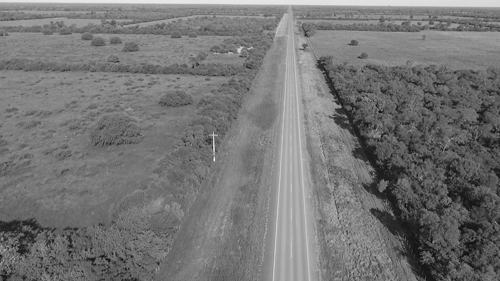
We’re on the Transchaco Highway. From border to border, this road takes us almost 1,000km through the lowland Chaco of Paraguay. There are few curves on the track and if there are, then only bends of a few degrees. We almost have the impression that we can see the entire route straight ahead to Bolivia when crossing the border from Brazil. The highway has different faces, once it pleases us with a newly laid asphalt layer, then we drive many kilometers on a construction site or a preliminary stage of the finished road, sometimes we also roll on the old route 9. This route is narrow, so that crossing two trucks requires a lot of concentration.
We spend several days from morning to evening on this not very varied road. The odometer turns incredibly slowly. The incidence of light changes exactly the same every day, in the morning on our back and in the evening on the front window. On the Transchaco, the journey is for once not the goal. The goal is customs on the other side. The steady roar of our truck diesel in the cruise control lulls us. We try not to nod off. It’s monotonous, always on both sides of the highway bush landscape. As a change, hundreds of white summer birds come flying across the street from time to time. The average temperature of around 35°C doesn’t really keep us awake either. The air conditioning ventilates and fights against the outside temperature, but we have cold feet, a hot head and dry mucous membranes. Due to the few movements, our backs are getting stiffer, which probably doesn’t make us younger. Sometimes we get a little apathetic, maybe just bored. Our thoughts let us wander away into other situations and pent-up things can be mentally released. We enjoy the cold water from our fridge. Leonard Cohen tells us his wisdom over the on-board loudspeaker, he has to drown out the steady rolling noise of the tyres. More than Leonard, however, the loud silence teaches us about ourselves and how to deal with such situations. After the Transchaco we clearly became wiser.
Happy moment
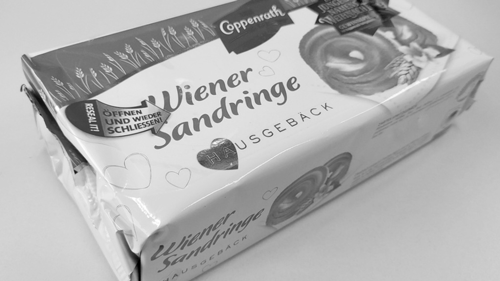
In Filadelfia, a place founded and still inhabited by German emigrants, we find the Supermercado of Paraguay or at least of the Chaco. Gabi buys many products that could have been made in Germany and also real imported products. It’s nice to find familiar, local products, even if the local ones are of course at least as good, but different. The damage that the purchase causes to our travel budget makes up for Gabi’s feeling of happiness and smile after leaving the store.
Encounters
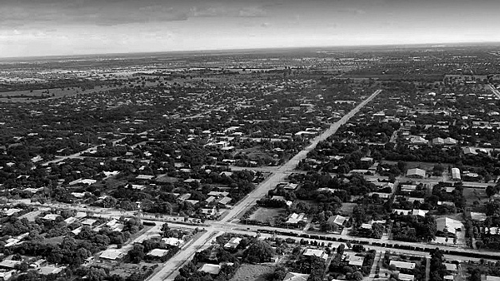
I have always pictured Mennonites as people stuck in the way of life of the Middle Ages. In Filadelfia I met a very different kind of Mennonite. Modern, open-minded people who slightly distance themselves from Rome in the Christian faith. For the most part, they do not carry weapons and are not baptized until they are adults. Here in the Chaco, they have mainly immigrated from Russia and have built a new life in this barren nature. Apparently, they received a lot of support from the Paraguayan state when immigrating. There are also actual groups among the Mennonites who reject modern technology and live quite secluded lives. We received all these explanations from a nice museum employee and actually learned something new in our old age.
Snare of mosquitoes
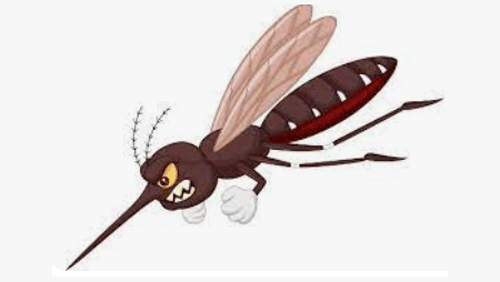
This year we are celebrating New Year’s Eve with Swiss emigrants on their farm in the Chaco. Cecile and Renato run the village restaurant here and we can take part in the New Year’s Eve menu. It rained here a few days ago – a blessing. However, that has also brought the slumbering mosquito larvae to life and they are hungry. Of course we are prepared, because the meal will of course take place outside on the veranda. Long trousers, a long t-shirt and sprayed with lots of mosquito poison several times. Nevertheless, Gabi is attacked so severely that we can no longer experience the New Year in the company of the hosts. We take refuge in the safe Globi and sleep through the turn of the year also this year.
For a smile
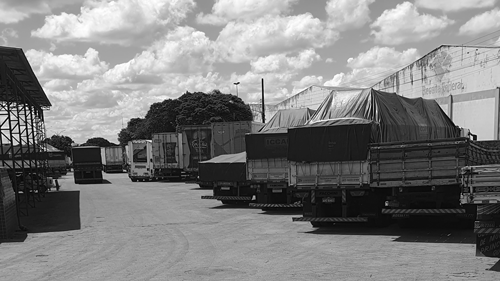 Crossing the border from Brazil to Paraguay in Ponta Pora is not for older inflexible travelers like us. We are used to customs clearance taking place on the arterial road from one country to another in such a way that you cannot miss it. This is not the case in Ponta Pora. We have to have our passports stamped at the airport, so we left Brazil as people. Somewhere in the city, on the Brazilian side, the city is divided in two and you keep changing from one state to the other without noticing it, there is a building with customs clearance. When we finally found it, of course it’s closed for the lunch break. Actually, we only have to stamp out our TIP, the temporary import permit for our vehicles, but that takes almost two hours. At another point in the city is the customs clearance of the Paraguayans. Here Gabi receives the information that a TIP for Paraguay would not be necessary! Entering Paraguay for us as people was a bit more difficult, we simply couldn’t find the building anywhere. However, we were sure that there would be one. Despite GPS and entering the address, we drove past the building several times. When we asked, road workers referred us to a construction site. It would never have occurred to us that offices could be operated on a construction site, but this is where we actually found the immigration authorities after our long odyssey. We definitely understood that the employees were not very friendly nor very efficient either, as they just adapted to their bad office situation. Crossing the border was at the end a full day job.
Crossing the border from Brazil to Paraguay in Ponta Pora is not for older inflexible travelers like us. We are used to customs clearance taking place on the arterial road from one country to another in such a way that you cannot miss it. This is not the case in Ponta Pora. We have to have our passports stamped at the airport, so we left Brazil as people. Somewhere in the city, on the Brazilian side, the city is divided in two and you keep changing from one state to the other without noticing it, there is a building with customs clearance. When we finally found it, of course it’s closed for the lunch break. Actually, we only have to stamp out our TIP, the temporary import permit for our vehicles, but that takes almost two hours. At another point in the city is the customs clearance of the Paraguayans. Here Gabi receives the information that a TIP for Paraguay would not be necessary! Entering Paraguay for us as people was a bit more difficult, we simply couldn’t find the building anywhere. However, we were sure that there would be one. Despite GPS and entering the address, we drove past the building several times. When we asked, road workers referred us to a construction site. It would never have occurred to us that offices could be operated on a construction site, but this is where we actually found the immigration authorities after our long odyssey. We definitely understood that the employees were not very friendly nor very efficient either, as they just adapted to their bad office situation. Crossing the border was at the end a full day job.





Leave A Comment